Turn any article into a podcast. Upgrade now to start listening.
Premium Members can share articles with friends & family to bypass the paywall.
It’s Thursday, September 11. Today marks 24 years since jihadi terrorists killed 2,977 people, including eight children. The names of all the victims are listed here.
Quick Hits: Today’s Top Stories
- Charlie Kirk, the 31-year-old Turning Point USA co-founder and influential right-wing activist, was killed yesterday after being shot in the neck while speaking at a Utah Valley University event. The single shooter fired from the top of a building 200 yards away. Despite the apprehension and questioning of two individuals soon after the shooting, no one has been charged and a multiagency manhunt continues. Kirk was close with President Donald Trump, who ordered that U.S. flags be lowered to half-staff through Sunday, and released a video last night in which he praised Kirk, condemned “demonizing” left-wing rhetoric, and vowed to bring to justice those responsible. Figures across the political aisle condemned his killing and rise in political violence, with Vice President J.D. Vance writing a long tribute to his “true friend” on X. Kirk was the father of two young children and husband of Erika Frantzve.
- Two students were wounded Wednesday in a high school shooting in Evergreen, Colorado. The suspected gunman, also a student, later died from self-inflicted gunshot wounds, according to local authorities. Both victims were taken to the hospital for serious injuries, and one student remains in critical condition, while the other’s condition is stable. Law enforcement has not yet released the identities of either the victims or suspected shooter. The high school is located in the same school district in Jefferson County, Colorado, as Columbine High School, where a 1999 student shooting left more than a dozen students dead. Federal agents from both the FBI and the Bureau of Alcohol, Tobacco, Firearms, and Explosives are assisting in the investigation.
- Israel launched air strikes against Houthi targets on Wednesday in Yemen’s capital city, Sanaa, and in its northern governorate, Al Jawf. The Israel Defense Forces (IDF) said it targeted the Iranian-backed, Yemen-based terrorist group’s military camps, a fuel depot, and headquarters that “spearheaded the regime’s propaganda and psychological terror efforts,” but Houthi officials say dozens of residents are dead. Israeli Prime Minister Benjamin Netanyahu said the air strikes were a response to a Houthi drone attack Sunday on Israel’s Ramon Airport, adding, “Anyone who strikes us, anyone who attacks us—we will reach them.”
- Three former senior FBI officials who were fired from their roles earlier this year sued FBI Director Kash Patel and Attorney General Pam Bondi Wednesday for unlawful termination. According to their complaint, Patel allegedly told then-FBI special agent Brian Driscoll to fire agents who worked on legal challenges against Trump and added that “his own job depended on the removal of the agents who worked on the cases against the President, regardless of whether the agents chose to work on those cases or not.” It further claims that Patel acknowledged to Driscoll that such firings “were likely illegal and that he could be sued and later deposed.”
- The Senate Banking Committee voted 13-11 on Wednesday to advance Trump’s Federal Reserve Governor nominee—current chair of the White House Council of Economic Advisers, Stephen Miran—to a Senate confirmation vote, which Republican senators hope to hold by September 15, according to Politico. If confirmed, Miran would replace a seat vacated by former Federal Reserve Governor Adriana Kugler, who submitted her resignation on August 8. All 24 senators on the committee voted along party lines.
- In a narrow 51-49 vote on Wednesday, Senate Republicans blocked a measure brought by Democratic Senate Minority Leader Chuck Schumer of New York to force a vote on releasing the Justice Department’s case files related to deceased convicted sex offender Jeffrey Epstein. The vote followed party lines, except for GOP Sens. Josh Hawley of Missouri and Rand Paul of Kentucky, who voted with Senate Democrats. Schumer’s proposal was similar to a discharge petition in the House, fronted by Republican Rep. Thomas Massie of Kentucky and Democratic Rep. Ro Khanna of California. Currently, that petition needs one more signature from a House member to trigger a vote in that chamber to release the Epstein files.
- A bipartisan group of House Armed Services Committee members will travel to China later in September for an official visit, which they confirmed to news outlets on Wednesday. The trip will be led by the committee’s former chair and current top-ranking Democrat, Rep. Adam Smith, who told NBC News that—while representatives from both parties will attend—the current chair, GOP Rep. Mike Rogers of Alabama, will not be joining. Also on Wednesday, unnamed Brazilian government officials told Reuters that China has approved imports of Brazilian sorghum, an agricultural product commonly used in cereal, which the U.S. has previously exported to China in large quantities.
A message from Political Wire
Concise. Relevant. To the Point.
Political Wire is where serious political junkies stay ahead. Join thousands of insiders who rely on Taegan Goddard’s exclusive analysis, a 24/7 trending news feed, bonus newsletters and a completely ad-free experience. The site is free to visit and the community is free to join—but membership gives you the edge. Use coupon code “dispatch” for 20% off an annual plan. Get Insider Access.
The Assassination of Charlie Kirk

The American Comeback Tour was barely 20 minutes old when the shot rang out, leaving Charlie Kirk slumped over in his chair and blood gushing from his neck. The Republican political activist had just kicked off a 15-stop swing across the country with the Turning Point USA (TPUSA) organization he founded, bringing his trademark “Prove Me Wrong” tent to Utah Valley University in Orem and answering questions from the students who had shown up to support—or challenge—his right-wing beliefs.
“Do you know how many mass shooters there have been in America over the last 10 years?” a presumably progressive questioner asked. Kirk responded, wryly: “Counting or not counting gang violence?”
Those were very likely the final words he ever spoke. Nearly 14 months after one gunman came inches away from taking the life of the leader of then-former President Donald Trump, another succeeded in assassinating one of the Make America Great Again movement’s most influential figures. Kirk was rushed to the nearby Timpanogos Regional Hospital, but anyone who saw one of the videos of the incident circulating on social media (which we will not link to here) knew the next update was unlikely to be a good one. At 4:40 p.m. ET, Trump confirmed the news: “The Great, and even Legendary, Charlie Kirk, is dead.”
As a non-paying reader, you are receiving a truncated version of The Morning Dispatch. You can read our full item in the members-only version of TMD.
Videos taken shortly after the shooting captured footage of someone running along the roof of a building about 200 yards away from where Kirk was sitting, but as of this writing, his killer remains on the loose. Law enforcement officials in Utah interrogated two suspects yesterday—one of whom FBI Director Kash Patel misleadingly described as “the subject for the horrific shooting” who was “in custody,” before backtracking—but both were released and declared to have “no current ties” to the violence. “While the suspect is at large, we believe this was a targeted attack,” Utah Department of Public Safety Commissioner Beau Mason told reporters. “There was one shot fired, and one victim.”
Although Kirk was almost 50 years Trump’s junior, few people played a larger role in spreading the president’s message and helping swing young voters to the right in recent years. Turning Point USA—which he founded in 2012 at the age of 18 to “identify, educate, train, and organize students to promote the principles of fiscal responsibility, free markets, and limited government”—says it has a presence on 3,500 campuses across the country, and The Charlie Kirk Show podcast routinely ranks atop the political category. The group’s strict adherence to “fiscal responsibility, free markets, and limited government” may have taken a hit as it navigated and grew with the Trump era, but, as Ross Douthat noted in the New York Times, Kirk and his organization fundamentally changed the perception of campus conservatism, making it “fun-loving, masculine, rowdy, mainstream, even faintly cool.”
Trump’s 2024 campaign relied on TPUSA’s affiliated political action committee for much of its ground game ahead of last November’s election, and Kirk himself was reportedly heavily involved in vetting candidates for jobs in the second Trump administration. “He didn’t just help us win in 2024,” Vice President J.D. Vance wrote last night. “He helped us staff the entire government.” When a Republican member of Congress complained anonymously to a reporter that Kirk had better seats at Trump’s inauguration in January than he or she did, GOP Sen. Jim Banks replied, “Charlie Kirk has done more than most members of congress combined to get us to this point today.”
Tributes to Kirk—who is survived by his wife, Erika, and their two young children—began rolling in immediately after his death was confirmed. Donald Trump Jr. described him as “one of the most courageous, principled men [he’s] ever known,” and Vance called him a “true friend.” The activist was plenty controversial outside of Republican circles—it wasn’t difficult to find examples of progressives joking about or even celebrating Kirk’s death online—but prominent figures on the left, from California Gov. Gavin Newsom to Vermont Sen. Bernie Sanders to New York City mayoral nominee Zohran Mamdani, were quick to condemn the assassination. “I’m saddened and angered by Charlie Kirk’s murder,” former President Bill Clinton wrote. “And I hope we all go through some serious introspection and redouble our efforts to engage in debate passionately, yet peacefully.”
But Clinton expressed similar sentiments when Trump was shot, and in the 14 months since, Americans have lived through the cold-blooded murders of a health care executive, two Israeli Embassy staffers in Washington, D.C., and a state lawmaker in Minnesota. The governor of Pennsylvania’s home was firebombed in April, a man threw Molotov cocktails at a group in Colorado that was calling for the release of hostages held by Hamas, and just last month, a gunman went on a rampage at the Centers for Disease Control headquarters that resulted in the death of a police officer. Before last summer’s two assassination attempts against Trump, crazed individuals plotted to murder a Supreme Court justice, shot at lawmakers practicing for the congressional baseball game, and broke into the home of the former speaker of the House, severely wounding her husband.
On Wednesday night, the president promised to bring those responsible for Kirk’s murder to justice and condemned political rhetoric coming from the left. “For years, those on the radical left have compared wonderful Americans like Charlie to Nazis and the world’s worst mass murderers and criminals,” Trump said in a video statement. “This kind of rhetoric is directly responsible for the terrorism that we’re seeing in our country today. And it must stop right now. My administration will find each and every one of those who contributed to this atrocity, and to other political violence, including the organizations that fund it and support it.”
Without a suspect even in custody, it’d be irresponsible to speculate about his or her motive—much less what comes next for the country—so we won’t. But the remarks delivered by Utah Gov. Spencer Cox Wednesday are worth considering. “Nothing I say can unite us as a country. Nothing I can say right now can fix what is broken. Nothing I say can bring back Charlie Kirk,” he told reporters. “[But] if anyone in the sound of my voice celebrated even a little bit at the news of this shooting, I would beg you to look in the mirror and see if you can find a better angel in there somewhere. I don’t care what his politics are, I care that he was an American.”
Digital Memories

September 11 occupies a unique place in the American psyche for many reasons: the nightmarish images of New York’s skyline aflame, blood-curdling views of waves of jumpers leaping from the twin towers, the heroism of first responders and ordinary citizens who ran toward the smoke, and the 2,977 innocent people killed as hijackers (and, in one case, resisting passengers) deliberately crashed planes in Manhattan, Virginia, and Pennsylvania.
But 9/11 also might be the last major historical event that happened before the age of ubiquitous cell phone video. Not too many years later, the event would have been exhaustingly, excruciatingly recorded in real time, on hundreds of thousands of cell phone cameras.
Social media would have sprung into action, with rumors on Twitter and TikTok crossing the globe in a matter of seconds, and influencers chiming in with their instant reactions. Online affiliates of Islamist groups would likely have taken advantage of this, as well, if the horrifying execution videos sent to the families of victims from the October 7, 2023, attacks in Israel are any indication.
But 2001 was only the cusp of the digital age. The video and photographic chronicle of 9/11 is still the product of an analog world—a documentary that began as a slice-of-life piece about the New York City Fire Department and became something else entirely. For years, much of the record of that day lived in basement boxes, desk drawers, and forgotten VHS tapes in the back of thrift stores. It also resided in the nooks and crannies of the early internet: .txt files, old personal websites, and message boards that have been deactivated for years (which are all far less likely to happen in the era of cloud storage).
All of these are examples of a strange sort of object, “lost media”—a record of an event that might be either inaccessible to the general public or previously considered completely lost. A quick perusal of the Lost Media Wiki reveals a mind-boggling range of ephemeral events—a lost alternate ending of a 2005 Doctor Who episode, televised football games from Penn’s 1938 season, clips of a purported Marian apparition in Japan in 1979.
September 11, one of the last major events most Americans collectively experienced without cell phone recordings, looms large in the lost media world. So much so, in fact, that it has a subreddit (essentially an internet message board dedicated to a specific topic): r/911archive, which has 124,000 weekly visitors and 2,800 weekly posts. Its mission statement says that it is “dedicated to archiving 9/11 media, whether it is in danger of becoming lost, already lost, or not well known.”
Just Wednesday, users uploaded a photo of a World Trade Center visitor’s pass from the day of the attack, grainy footage from a handheld Sony Mavica of the towers on fire, the tape of a game show appearance in 2000 by Charles Burlingame III, the captain of Flight 77, and many testimonies about both victims and survivors.
Andrew Boston, a security systems contractor in Omaha, Nebraska, (who goes by the name BetweenTwoTowers on Reddit) and the co-founder of r/911archive, had the same experience as millions of Americans on 9/11. “I was 6 when the attacks happened,” he told TMD, but with vivid memories of not knowing where his father, traveling at the time, was until 8 p.m. that day.
Witnessing such a monumental and horrific event at an early age spurred Boston’s interest in trying to understand it. “At the same time I was learning about the Titanic, and all these things that were long ago and far away, here’s this thing that’s happening right now, and there’s all this information,” he said. “It’s just a fascination with just the stories and everything, like seeing how they all fit together.”
“I don’t view myself as an expert on anything,” he told TMD. But during the course of a nearly two-hour interview, he confidently rattled off details about the fire door systems in the towers, information on how the Port Authority was able to circumvent arcane parts of the New York building code because it was a bi-state entity, and exactly how Latin American TV coverage of the day of the attacks differed from that of U.S. networks.
What motivates Boston, and many others like him in the community, is the desire to create a clear public record of the attack. He took an active role in systematically collecting online records of the attacks, he said, after advances in software made it easier to enforce the Digital Millennium Copyright Act, and news networks that owned the rights to footage began to take it off the internet. “At least for our country, it’s a massive historical event,” he argued. “To what degree do you have the right to take it down, because if you’re not going to facilitate it being available, there needs to be a record of it existing.”
Yale sociologist Jeffrey Alexander, who studies cultural trauma, told TMD that this collection process was a sign that 9/11 is becoming something akin to the Civil War or the John F. Kennedy assassination: a distant historical event. “Now people are in the stage of collecting things,” he said. “When something becomes collectible, it seems to mark a stage where it’s still significant, but its significance is indirect, and accrues to tiny things that aren’t really representations of the whole event.” In a way, many 9/11 redditors might be akin to Civil War reenactors, keeping the memory of something alive out of fascination, or a sense of duty, but not direct personal experience.
The message board is strongly moderated, with strict rules about posting conspiracy theories, respecting the dead and survivors, and not engaging in hateful speech. The majority of recent posts appear to fall into two main categories: testimonies of survivors and victims, often recounting stories of heroism and sacrifice, and a preoccupation with how on 9/11, the world changed in a single instant. Posts with hundreds or thousands of upvotes include a September 10, 2001, receipt from Windows on the World, the restaurant perched atop the North Tower, photos of the World Trade Center shortly before the attacks, and the emergency message sent out to airplane pilots just after the planes were flown into the towers.
But in recent years, another, darker side of the urge to collect records of 9/11 has emerged. Around 2020, Boston recalled, percolating rumours, originally spurred by a 2014 post on 4chan (Reddit’s much-less-moderated cousin, whose users have a history of sharing gruesome videos) exploded, positing the existence of a number of lost videos from the near vicinity of the towers. With purported titles like “LOL Superman” (LSM), these videos allegedly show jumpers from the towers hitting the ground. Discussion of the subject is banned from most 9/11 media forums.
In the months and years immediately following 9/11, television specials and traditional print media sought to explain the meaning of the tragedy. Brian Monahan, a sociologist at Baldwin Wallace University who wrote a book on how media interpreted the 9/11 attacks, told TMD that the public’s experience of the event has changed dramatically over time.
Memories of 9/11, either through personal experiences or television broadcasts, eventually became “institutional,” he argued, mediated through political campaigns, memorials, and yearly remembrances. “Someone else built these structures that help us remember, and [tell us] how we should remember,” he said.
The internet, in that sense, is a massive store of institutional memory—even if it is sometimes so massive that it’s impossible to create a coherent narrative out of all it contains. The r/911archive page is an attempt to impose order on that chaos, to establish ways of remembering an event that shook the world, even if many users don’t directly remember it themselves.
Boston told TMD that many of the hunters for the most gruesome lost 9/11 videos seem motivated by a genuine, if misguided, sense that documenting everything that happened on that day is of utmost importance. “I still don’t think that any amount of curiosity is inherently bad,” he said. “I can understand how people arrive at the situation of where they want to see something that someone, at some point, told them that they can’t.” But even if someone found these (likely non-existent) videos, they wouldn’t actually be any closer to understanding what happened on 9/11. There would be no great revelation—just more evidence of a gruesome truth that everyone already knows.
In fact, documentarians on the scene that day deliberately chose to avoid shooting some of the most horrifying videos. Human beings on fire, or bodies hitting the pavement, were not something “anyone should see,” said Jules Naudet, who with his brother created one of the earliest 9/11 documentaries.
It’s easy, however, in the age of ubiquitous images, to lose the sense of what one should, or shouldn’t, see. The gathering of the most mundane images of the day—at one point, Boston showed TMD the application forms for a new electrical system in 4 World Trade Center—are just one manifestation of the deeply human desire to empathize with one another across time. That desire can be moving, sentimental, important, and occasionally, deeply disturbing.
“In the early days of the trauma, people didn’t worry about whether it made sense,” said Alexander. “Its meaning appeared evident to people at the time.” That, increasingly, is no longer the case.
Today’s Must-Read
Perhaps, in the coming years, we will return to the asylum. There will be hurdles: civil rights laws to overturn, medical standards to reform, capacity to build, huge sums of money to spend. It’s far simpler to write a quick op-ed calling for all the dangerous lunatics to be locked up again than to actually do it, but with enough dedicated energy and zealous citizens committed to reform, we can no doubt figure out how to return some several million American lunatics to the hospital, to pay the hundreds and hundreds of billions of dollars annually it’s likely to require, and to do it right this time: forcible medication and long holds, but no starvation or lobotomies, no patients chained naked to the floor if we can help it. The rate of violent crime committed by unmedicated schizophrenics will no doubt plummet; the stories, once haunting nearly every other issue of the New York Post, will cease.
Toeing the Company Line
The Bully Backs Down, Again
Russia gets bolder in the face of Trump’s inaction on Ukraine.
The Department of Sanitation
Russia, Poland, and the new multipolar order.
America’s Latest Farmer Crisis Is Government-Grown
Federal policy is driving production costs up and prices down.
The Assassin’s Veto
What the tragic murder of Charlie Kirk tells us about the dangers facing the American republic.
Why American Libel Law Is a Disaster
Emmanuel Macron and his wife will almost certainly lose their case against Candace Owens.
For GOP Candidates, the Path to Victory Starts With Trump
How primary campaigns vie to earn the president’s endorsement.
Congress Won’t Contradict Trump
A boat strike may violate the laws of armed conflict, but does that even matter?
Honor Among Nations | Interview: Graeme Wood
‘My heart bleeds for the Islamic post-liberals of Saudi Arabia.’
Worth Your Time
Rather than recommend one article, here is a list of some of the best pieces written about 9/11, published in various outlets in the years since.
- Tim Alberta’s “He Was the Manager of Windows on the World” in The Atlantic
- Nick Catoggio’s “Remembering 9/11” in Hot Air
- Garrett Graff’s “‘We’re the Only Plane in the Sky’” in Politico
- Tom Junod’s “The Falling Man” in Esquire
- Matt Labash’s “South Toward Hell” in The Weekly Standard
- Rebecca Liss’ “An Unlikely Hero,” in Slate
- Ian McEwan’s “Only love and then oblivion” in The Guardian
- James B. Stewart’s “The Real Heroes Are Dead” in The Atlantic
- Tim Townsend’s “The First Hours,” in Rolling Stone
- David Foster Wallace’s “9/11, As Seen From The Midwest,” in Rolling Stone
Presented Without Comment
New York Post: Names of Nearly 40 FDNY Heroes Added to 9/11 Memorial in Touching Ceremony: ‘Always So Bittersweet’
Let Us Know
Have any thoughts or questions about today’s newsletter? Drop us a note in the comments!


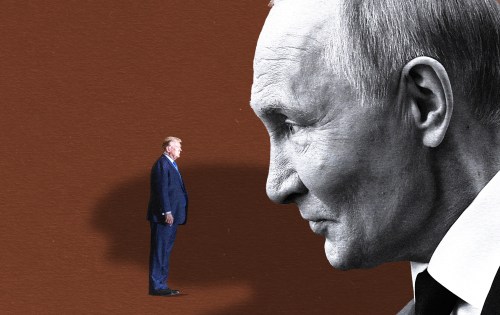
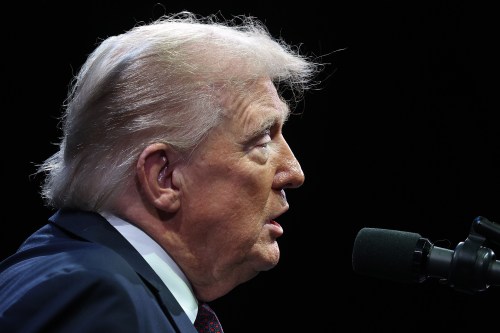

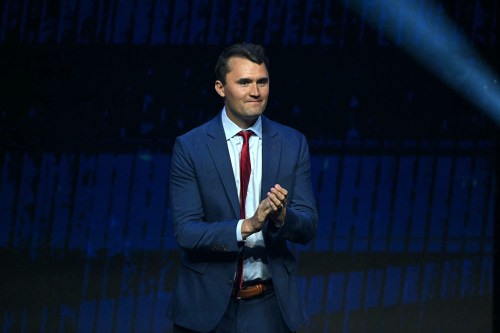
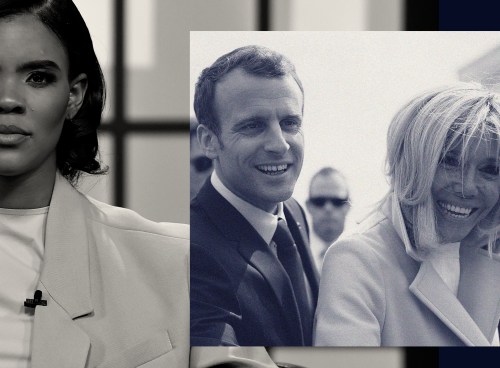
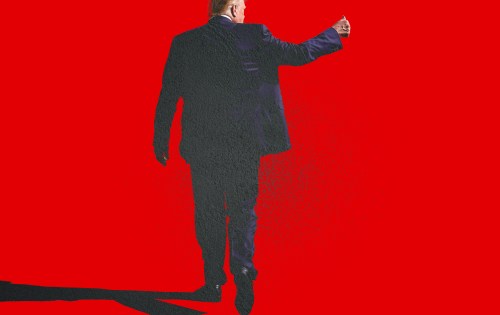
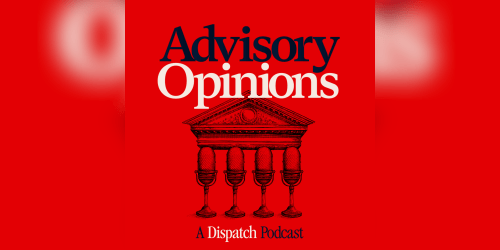






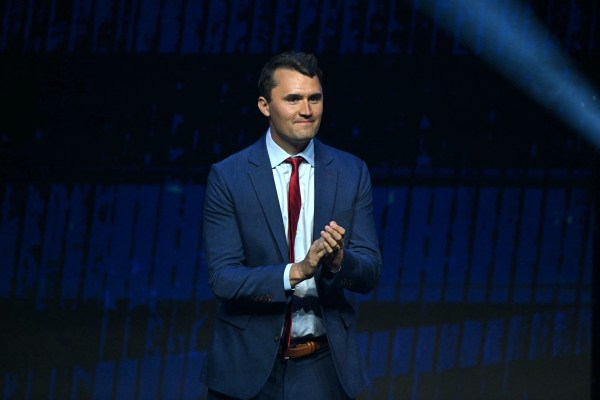
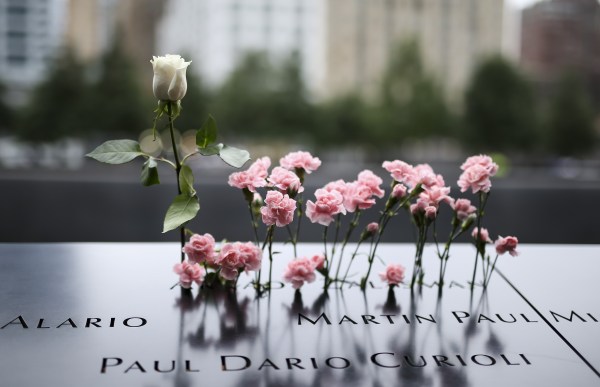
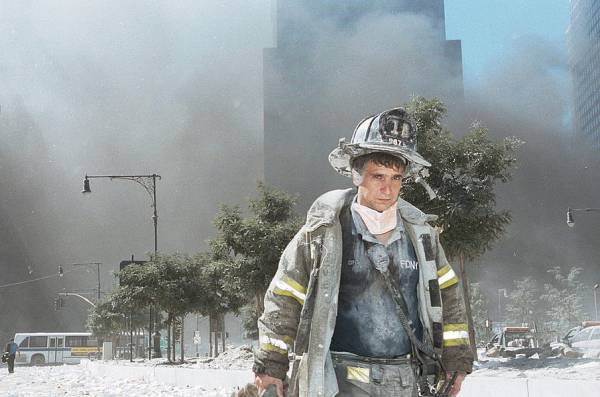
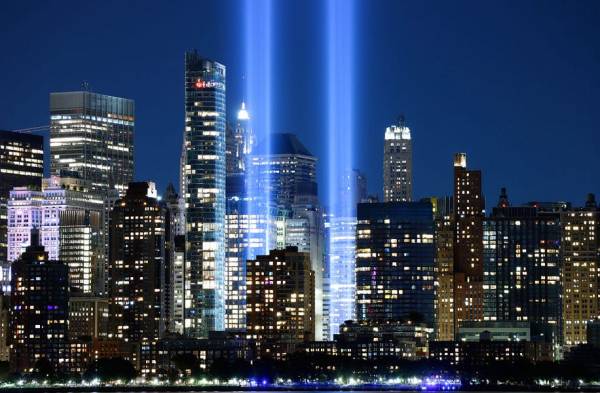
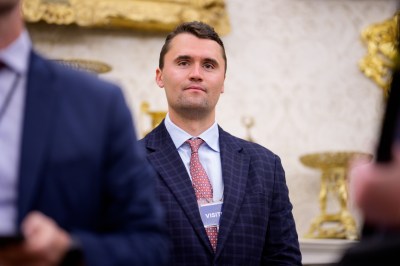
Please note that we at The Dispatch hold ourselves, our work, and our commenters to a higher standard than other places on the internet. We welcome comments that foster genuine debate or discussion—including comments critical of us or our work—but responses that include ad hominem attacks on fellow Dispatch members or are intended to stoke fear and anger may be moderated.
With your membership, you only have the ability to comment on The Morning Dispatch articles. Consider upgrading to join the conversation everywhere.